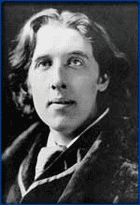I’ve long been fascinated by actor/director Orson Welles. Right now, I’m reading a wonderful biography of him published in 1995, Orson Welles: The Road to Xanadu, by Simon Callow.
Like many epicurians, Welles was born under the sign of Taurus, the same sign as William Randolph Hearst, the media mogul who was the inspiration for Welles’ epic film Citizen Kane.
Here’s what’s interesting. Many astrology Web sites, including Astrotheme of France, show Welles being born at 7 a.m. on May 6, 1915 in Kenosha, Wis.
That’s not the time that Callow reports. According to the Welles biographer, journalists were constantly asking to see Welles’ birth certificate because they wanted to prove that he was 5 to 10 years older than the wunderkind said he was.
Says Callow: “His mother later told him that because it was six o’clock in the morning — the time Kenosha’s many factories started work — whistles and bells had all started blowing at once, as if to herald him; a perfectly appropriate beginning, since most of the rest of his life was accompanied by fanfares of one sort or another.”
This reminds me of inventor Nikola Tesla, who was reportedly born at midnight as lightning struck outside.
My goal in writing this post is to point out that the time of birth floating around the blogosphere for Welles is most likely wrong. I intend to write more about the prodigy, who had a creative Venus/Mars conjunction in pioneering Aries, after I finish the book and complete my research into Welles’ Depression-era production of The Cradle Will Rock.
Like another O.W. (Oscar Wilde), Welles was born with a conjunction between revolutionary Uranus and the public-oriented North Node.
Wilde had Moon square his Uranus/Node conjunction; Welles had the Moon in the middle of his Uranus/Node combo. According to Reinhold Ebertin’s The Combination of Stellar Influences, this picture results in “an excitable disposition in the presence of other persons.”
Here’s a natal chart for Welles with a 6 a.m. time of birth, courtesy of Astrodienst.
Of course, reading a biography is not as foolproof as seeing a birth certificate for Welles. But back in those days birth times were often not recorded. As I like to point out, biographies are a treasure trove of data for the astrological student.
I’ve got one word for you: Rosebud.
